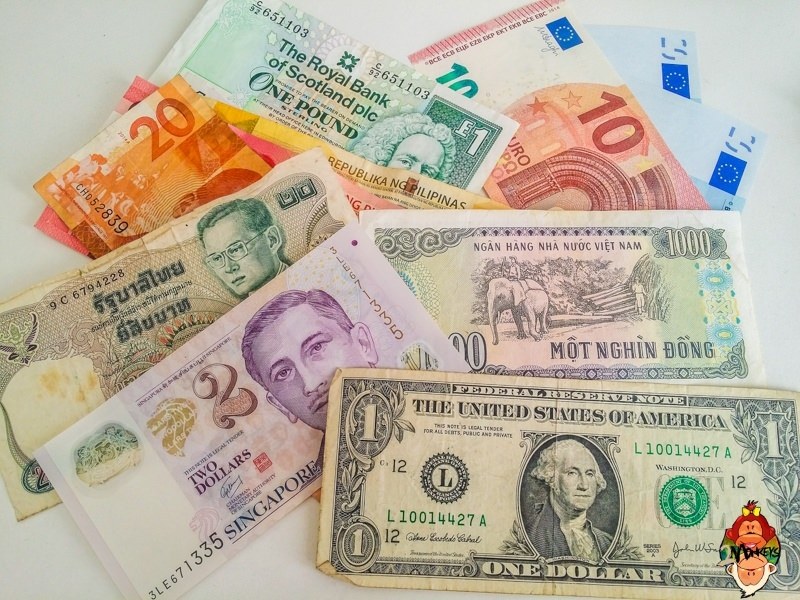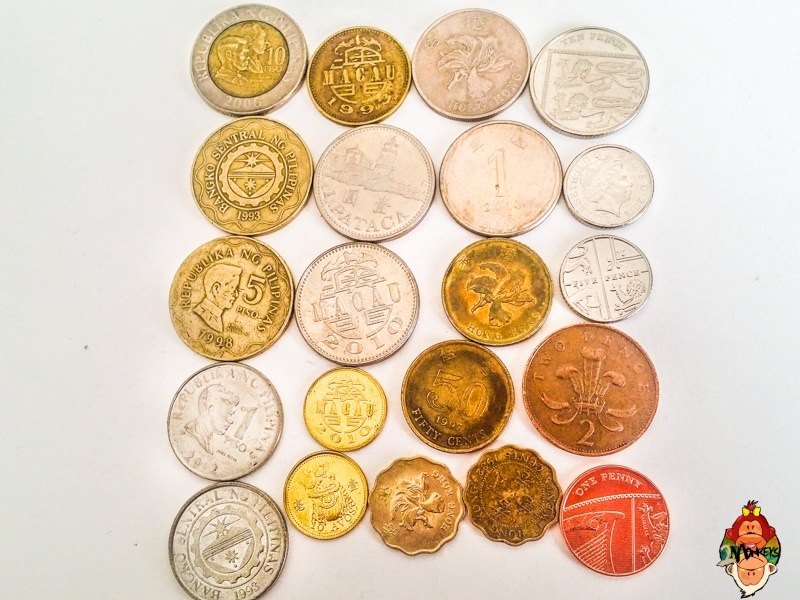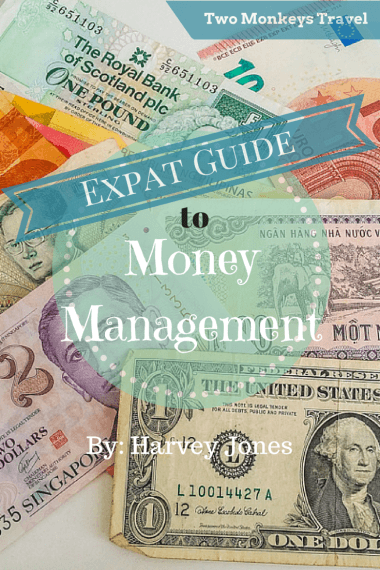Middle East Expat’s Guide To Money Management
Moving overseas to work means travel, adventure, fresh challenges and great career opportunities, but first you have to get the money right.
Here’s our Middle East Expat’s Guide To Money Management
Whether you are heading to Middle East hubs such as Dubai and Abu Dhabi, or other popular expat destinations, managing your money is the key to getting the most out of your foreign adventure. It may be more complicated than you think. You are likely to find yourself dealing in two currencies (or more) and having to carry out large-scale foreign currency transfers for the first time.

You may want to send money overseas to buy a property, or make a regular money remittance to your home country, safely and conveniently, and without racking up needless charges. Wherever in the world you are flying, this expat guide to money will help you keep your feet on the ground.
Table of Contents
Sending money overseas
For expats, money is a two-way street. You may want to send large sums of cash overseas when you first move abroad, say, to cover your upfront expenses or even put down a deposit on a property.
As you become established and start building your career, the cash may flow in the other direction, as you start sending money back home. Many expats continue to have financial responsibilities in their home country, such as ongoing mortgage or insurance payments, or want to build up pension and other savings for when they finally return.
Whether you are sending dollars or dirhams, one of the first things you will discover is that your bank isn’t necessarily the best way to move large sums of money or send regular payments back home. Their charges can be shockingly high, the exchange rates are often unfavourable and you have to beware hidden fees.
More experienced expats often prefer to use specialist international money transfer services instead, such as HIFX and Western Union.
The best currency services allow you to make electronic transfers from your personal current account easily, securely and at bank-beating exchange rates. They also allow you to transfer money quickly either by phone or online, 24 hours a day, seven days a week. Compare rates and costs with your own bank, you might be surprised by how much you could save on each money remittance.
Somebody transferring £10,000 into euros got an extra £325 from HIFX compared to making the same transaction via NatWest, recent figures show. And the savings were even greater compared to transferring with Lloyds bank, HSBC and PayPal.
Also, most banks charge one-off transaction fees of up to £30, which many currency services, including HIFX, waive altogether.
Specialist money transfer companies also offer a number of services to make sending money back home easier.
You can set up a regular monthly payment. This way money is transferred from your account every month, either at a fixed exchange rate if you want to lock into current rates, or a variable rate. Or you can contract to send a lump sum at a pre-agreed date, say, when you need to send money abroad for a property deposit. It pays to shop around to find the money transfer service that meets your needs.

Currency risk
There are threats as well as opportunities when moving abroad, and one you must watch out for is currency risk. Currencies constantly move against one another, so the rate you get on your money transfers changes all the time.
These movements can be dramatic, for example, after the financial crisis sterling crashed up to 30% against the dollar and euro.
Many British expats seized on the opportunity to send their dollar or euro earnings back to the UK at favorable rates. Be warned: currency risk can also work against you. The strong US dollar has been a great opportunity for expats in the UAE, where the Emirati dirham is pegged to the US dollar.
If you have sent home 200,000 Emirati Dirhams to the UK in the summer of 2014 you would have had £31,600. Two years later the same sum would have bought you £35,000, almost 10% more.
You must be particularly alert to currency risk when shifting large sums abroad to buy a property, as even a small shift in exchange rates can cost you dear. Again, currency transfer services can help you avoid the shifting sands of currency risk by allowing you to lock into a favorable rate, protecting you from further movements. This may work against you if the two currencies move in unexpected ways, but it does give you more security. A good currency service may even allow you to set up a market watch order so you transfer currency when the exchange hits a previously agreed level.
Taxing time
If you are heading to a low or zero tax destination, say in the Middle East, you may breathe a sigh of relief at finally US, internal revenue service, expats escaping the clutches of the taxman. Don’t believe it: there is no instant tax exemption for expats. The long arm of the taxman can still stretch overseas to grab a share of your hard-earned wealth, years after your departure. If you have assets at home, such as a property or investments, you may still have to pay local tax on your income and capital gains. Your tax residence or domicile status will also affect what tax you pay on the rest of your money.
In the worst cases, you could even be liable to pay tax on all your worldwide income in your country of origin. The rules can be particularly tough on US citizens, who are required to report their global income to the Internal Revenue Service (IRS).
The UK has also introduced tougher residency tests, assessing how many ties British expats retain back home before deciding how to tax their assets. Australia and other countries have also tightened up. Tax and residency regulations are changing all the time as cash-strapped governments look to boost their tax take. You could pay a hefty price if you don’t keep on top of tax developments at home.
Tax authorities in popular expat destinations such as the Middle East and elsewhere have often signed extensive networks of “double taxation treaties” to ensure foreign workers don’t pay tax twice on the same money. The rules are complex and vary according to your country of origin, new location and personal circumstances such as the assets you own and how long you spend in each country.
You should consider seeking tax advice from a trusted specialist, to make sure you don’t pay more than you need.

Banking
If you plan to live and work overseas, it makes sense to set up an offshore bank account before you go. For peace of mind, you can start by setting up an account with the offshore subsidiary of many familiar global banking names.
Growing numbers of global banks are also setting up branches in countries such as Dubai, Abu Dhabi, Saudi Arabia and other Middle Eastern expat hotspots, notably ABN AMRO, Barclays, Citibank, HSBC and Standard Chartered.
They offer everyday banking services including online accounts, credit cards and ATM withdrawals to help you manage your money with minimum fuss.
They also have savings accounts, fixed-rate bonds, children’s savings, insurance, mortgages and personal loans.
Most banks may also offer wealth management services, including investment advice, tax and inheritance planning, and so on. Alternatively, higher earners could consider a private banking service. Many expats choose an offshore bank with a familiar name, but it can pay to shop around for the best service you can find. Online comparison sites can help. For example, Souqalmal.com and MoneyCamel.com in the UAE allow you to search for the best bank accounts, mortgages, insurance policies, credit cards, mortgages and so on.
These are also a useful gateway for local banks whose services you might otherwise have missed out.
You can set up a local bank account after you arrive in your new country. Speed up the process by gathering all the necessary documents, such as your passport, residence permit, utility bill, statement from any existing bank, and a reference letter from your employer. A word of warning. You may have occasionally dipped into the red back home, but going overdrawn in the Middle East is a much riskier thing to do, and writing a cheque that bounces can be viewed as a criminal offence. The penalties can be severe, so don’t take a chance.

Beware fraudsters
When relocating overseas, you have to watch out for sharks. Fraudsters and financial conman lurk in expat waters, where they find easy prey among unsuspecting newcomers. Every expat knows somebody who has fallen victim to an unscrupulous financial adviser who locked their money away in underperforming offshore bonds with sneaky and punitive charges. Others are even more blatant, and will simply run off with your money.
Many countries are only beginning to build up a financial regulatory regime, and sanctions against the criminals are rare. There is unlikely to be the equivalent of the UK’s Financial Conduct Authority, or the deposit guarantee schemes that are widespread across the European Union and protect the first €100,000 or £75,000 of your savings if your bank goes bust. These schemes don’t cover the offshore subsidiaries of big-name global banks, so be cautious.
Basically, you are on your own, and the fraudsters know it.
So before taking financial advice, make sure you are dealing with a reputable company. Seek recommendations from other expats, or look for a reputable global advisory company or offshore bank.

Planning your return home
While living the expat experience to the full, you also have to you plan carefully for the future. Most expats plan to return home one day, perhaps when they retire. As life expectancy rises, and state pensions come under pressure, you need to save as much as you can to enjoy your retirement to the max.
If you are lucky, your employer will offer you a pension scheme, but you should also build up substantial pension and investments in your own name.
You should take advantage of favorable currency movements to switch your savings into the currency of the country you ultimately plan to retire in, especially as you get closer to your pension age. You also have to decide what to do with any existing pension plans from your home country, especially if you plan to retire elsewhere. Property is another issue. You need to act early if you have to buy a property in your chosen retirement destination, to ensure you have cleared all the mortgage debt before you stop working.
Again, this may involve sending money back home, so shop around for a currency transfer service that offers the best deal on your regular money remittance.
Becoming an expat could be the adventure of a lifetime. This expat guide to money should help you live it to the full, while avoiding the financial pitfalls.
About the Writer
 Harvey Jones has been a freelance personal financial journalist for 20 years writing for British newspapers including The Times, The Guardian, The Daily Telegraph and The Financial Times. He is currently personal finance editor of the Daily Express and Sunday Express, and also writes regularly for The National, the English language newspaper for expats in the UAE.
Harvey Jones has been a freelance personal financial journalist for 20 years writing for British newspapers including The Times, The Guardian, The Daily Telegraph and The Financial Times. He is currently personal finance editor of the Daily Express and Sunday Express, and also writes regularly for The National, the English language newspaper for expats in the UAE.



